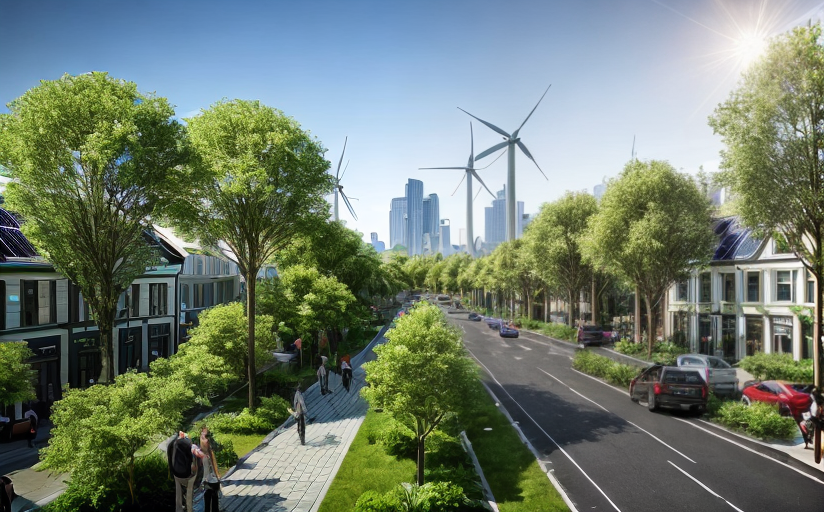Utilizing Advanced Technology in Environmentally Sustainable Urban Planning
Sustainable urban planning is a concept that is rapidly gaining traction around the world. This approach to designing our towns and cities prioritizes environmental health, making green technology and renewable energy key components.
The Importance of Sustainable Urban Planning
Sustainability in urban planning is crucial owing to rapidly increasing urban populations and the escalating environmental threats that we face. The infrastructure of cities and towns has a profound impact on our natural environment, economy, health, and productivity. Renewable energy, efficient waste management, maximized use of green spaces, and the reduction of emissions are all elements in this equation.
Potential of Advanced Technology in Urban Planning
Technology holds the key to potent solutions to overcome environmental challenges. It shapes sustainable architecture, enables renewable energy sources, improves waste management systems, and promotes efficient utilization of urban data analysis.
Green Building Technologies
Green building technologies have a substantial role in shaping eco-friendly cities. Efficient insulation, solar panel systems, and rainwater collection are just a few facets of this technology that contribute to the sustainability of a city.
Renewable Energy
The incorporation of renewable energy sources like solar, wind, and hydroelectric power reduces a city's reliance on fossil fuels and decreases greenhouse gas emissions. This technology is now being seamlessly integrated into urban architectural designs, contributing to their sustainability.
Smart Grids and Waste Management Systems
Smart grids, integrated with renewable energy sources, contribute significantly towards energy efficiency. On the other hand, advanced waste management systems optimize the collection, transportation, and disposal of waste, while promoting recycling and reducing environmental impact.
Urban Data Analysis
Urban data analysis assists planners in gathering and processing large amounts of data to form better decisions and designs, leading to more efficient, sustainable, and high-quality urban spaces.
Innovative International Examples
Around the world, cities are embracing these principles and practices. Copenhagen, for example, is striving to become the world's first carbon-neutral capital, and Singapore’s Garden City initiative has successfully integrated green spaces into the heart of the cityscape.
Challenges and Strategies for Overcoming Obstacles
Despite the advantages, there exist several challenges in integrating technology into sustainable urban planning. These include high initial costs, cultural resistance, and economic and political factors. However, these challenges can be navigated through policy reform, public education, and incentives for businesses to adopt sustainable practices.
In conclusion, advancing technology can greatly enhance the process of sustainable urban planning. It is crucial for environmental health, economic stability, and societal well-being. By learning from global examples and overcoming challenges, we can create a future where tech-integrated sustainable urban planning is the norm.



















Comments
Leave a Comment